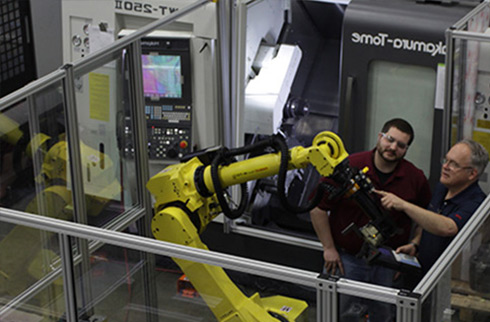
- Afrikaans
- Albanian
- Amharic
- Arabic
- Armenian
- Azerbaijani
- Basque
- Belarusian
- Bengali
- Bosnian
- Bulgarian
- Catalan
- Cebuano
- Corsican
- Croatian
- Czech
- Danish
- Dutch
- English
- Esperanto
- Estonian
- Finnish
- French
- Frisian
- Galician
- Georgian
- German
- Greek
- Gujarati
- Haitian Creole
- hausa
- hawaiian
- Hebrew
- Hindi
- Miao
- Hungarian
- Icelandic
- igbo
- Indonesian
- irish
- Italian
- Japanese
- Javanese
- Kannada
- kazakh
- Khmer
- Rwandese
- Korean
- Kurdish
- Kyrgyz
- Lao
- Latin
- Latvian
- Lithuanian
- Luxembourgish
- Macedonian
- Malgashi
- Malay
- Malayalam
- Maltese
- Maori
- Marathi
- Mongolian
- Myanmar
- Nepali
- Norwegian
- Norwegian
- Occitan
- Pashto
- Persian
- Polish
- Portuguese
- Punjabi
- Romanian
- Russian
- Samoan
- Scottish Gaelic
- Serbian
- Sesotho
- Shona
- Sindhi
- Sinhala
- Slovak
- Slovenian
- Somali
- Spanish
- Sundanese
- Swahili
- Swedish
- Tagalog
- Tajik
- Tamil
- Tatar
- Telugu
- Thai
- Turkish
- Turkmen
- Ukrainian
- Urdu
- Uighur
- Uzbek
- Vietnamese
- Welsh
- Bantu
- Yiddish
- Yoruba
Leading Manufacturers of Tunnel Car Wash Systems for Efficient Cleaning Solutions
The Evolution of Tunnel Car Wash Manufacturing A Comprehensive Overview
The automotive industry has witnessed significant transformations over the years, one of which is the emergence and evolution of tunnel car wash systems. These automated washing systems have not only streamlined the cleaning process but have also made vehicle maintenance more convenient and efficient for consumers. As such, the role of tunnel car wash manufacturers has become increasingly important. This article aims to explore the dynamics of tunnel car wash manufacturing, key players in the industry, and the future of this essential service.
The Rise of Tunnel Car Wash Systems
Tunnel car washes have gained popularity as they provide a quick and effective means of maintaining vehicle cleanliness. Unlike traditional hand washes, tunnel washes can clean multiple vehicles simultaneously, drastically reducing waiting times. The concept involves vehicles being driven through a long, specialized tunnel equipped with numerous cleaning elements, including brushes, high-pressure jets, and drying systems.
The first tunnel car washes emerged in the 1950s and have since evolved into sophisticated systems that utilize state-of-the-art technology. Manufacturers have continuously innovated by integrating features like water recycling systems, eco-friendly soaps, and automated payment solutions, addressing both environmental concerns and consumer needs.
Key Manufacturers in the Industry
The tunnel car wash manufacturing industry is home to several significant players who have established a reputation for quality and innovation. Companies such as Mark VII Equipment, Belanger, and PDQ Manufacturing are at the forefront of this sector, offering a diverse range of products and services.
Mark VII Equipment is known for designing advanced car wash systems that utilize the latest technology to enhance performance and efficiency. With a focus on sustainability, Mark VII integrates water conservation systems in their washes, providing operators with cost-effective solutions that address the environmental impact of car washing.
Belanger, Inc., another leader in the field, specializes in producing high-performance tunnel wash components. Their equipment is recognized for durability and effectiveness, catering to various market segments from small car washes to large industrial operations. Belanger emphasizes the importance of customer service and technical support, ensuring that operators receive assistance throughout the life of their systems.
tunnel car wash manufacturers

PDQ Manufacturing has carved a niche for itself by focusing on innovation. The company has developed proprietary technologies like the LaserWash, which utilizes high-pressure wash systems and advanced drying techniques. PDQ is committed to enhancing the customer experience, with initiatives aimed at reducing vehicle turnaround time while maintaining a high-quality wash.
Trends and Technologies Shaping the Future
As technology continues to evolve, tunnel car wash manufacturers are adapting to meet changing consumer demands and industry standards. Some key trends influencing the future of this sector include
1. Eco-Friendly Solutions There is an increasing emphasis on sustainability within the car wash industry. Manufacturers are investing in biodegradable cleaning agents and water reclaim systems that significantly reduce water consumption, aligning their offerings with eco-conscious consumer preferences.
2. Automation and Smart Technology The integration of smart technology into tunnel car washes is a growing trend. Manufacturers are developing systems that incorporate artificial intelligence to monitor wash performance, predict maintenance needs, and optimize water usage, thereby enhancing operational efficiency.
3. Payment Innovations With the rise of contactless payment systems, manufacturers are incorporating advanced payment solutions to streamline customer transactions. This not only improves the customer experience but also minimizes the need for cash handling and enhances overall hygiene.
4. Customization Options Tunnel car wash manufacturers are recognizing the value of offering customizable wash packages that cater to diverse customer needs. From basic rinses to premium detailing, the ability to personalize wash experiences is becoming increasingly important in a competitive market.
Conclusion
The tunnel car wash manufacturing industry has come a long way since its inception, evolving in response to technological advancements, customer preferences, and environmental considerations. Key players continue to innovate, providing efficient, effective, and sustainable solutions for vehicle maintenance. As the automotive sector progresses, tunnel car wash manufacturers will play a crucial role in shaping the future of vehicle care, enhancing convenience and sustainability for consumers everywhere. With ongoing advancements towards eco-friendliness and automation, the future of tunnel car washes looks promising, ensuring cleaner vehicles and a brighter outlook for both the industry and the environment.
-
Integrating Aqua Tunnel Car Wash in Shopping CentersNewsJun.24,2025
-
Gas Station with an Auto Car Wash MachineNewsJun.24,2025
-
Efficiency in Your Aqua Tunnel Car Wash: Power & Water-SavingNewsJun.24,2025
-
Car Wash Business with Advanced Auto Car Cleaning MachinesNewsJun.24,2025
-
Balancing Setup Costs with Aqua Tunnel Car WashNewsJun.24,2025
-
Aqua Tunnel Car Wash: Eco-Design for the Energy-Savvy EntrepreneurNewsJun.24,2025



